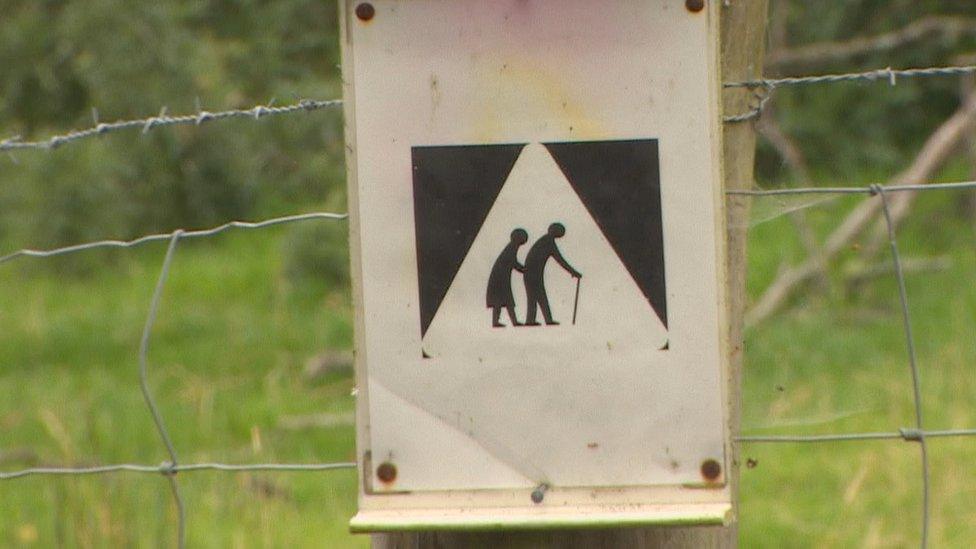Herbert Protocol: Missing people info 'will save lives'
- Published
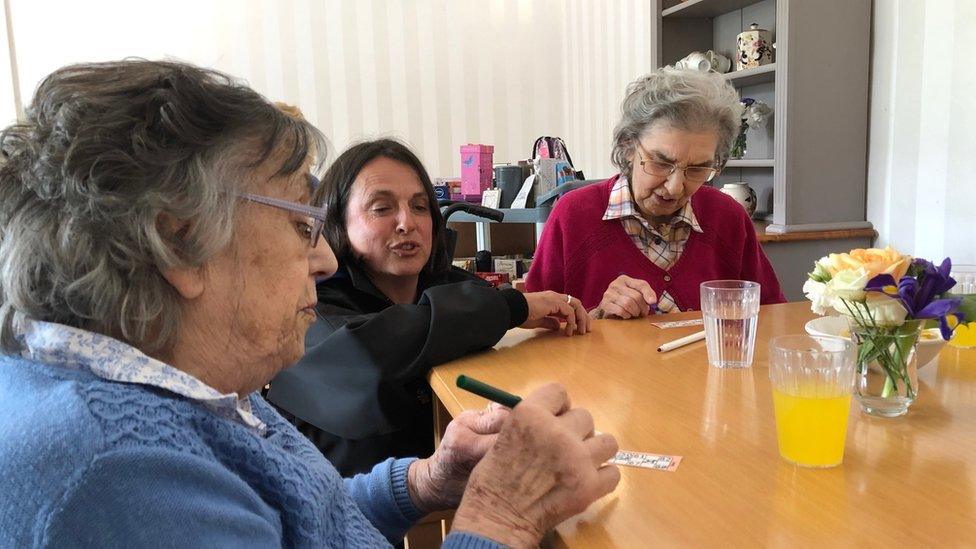
PCSO Iona Beckman is determined to spread the Herbert Protocol message
"Every minute counts - and this will help save lives," insists community support officer Iona Beckmann.
She is a champion for the 'Herbert Protocol' for North Wales Police.
The national scheme makes sure officers get vital information on a missing vulnerable person as quickly as possible - to help track them down swiftly.
But the protocol can only work if carers and care homes sign up for it, said PCSO Beckmann.
Carers are encouraged to download the short protocol forms and register themselves with the police.
They are asked to provide a recent photograph of the individual in their care, and details such as medical history, family contacts, and whether they have a bus pass, for instance.
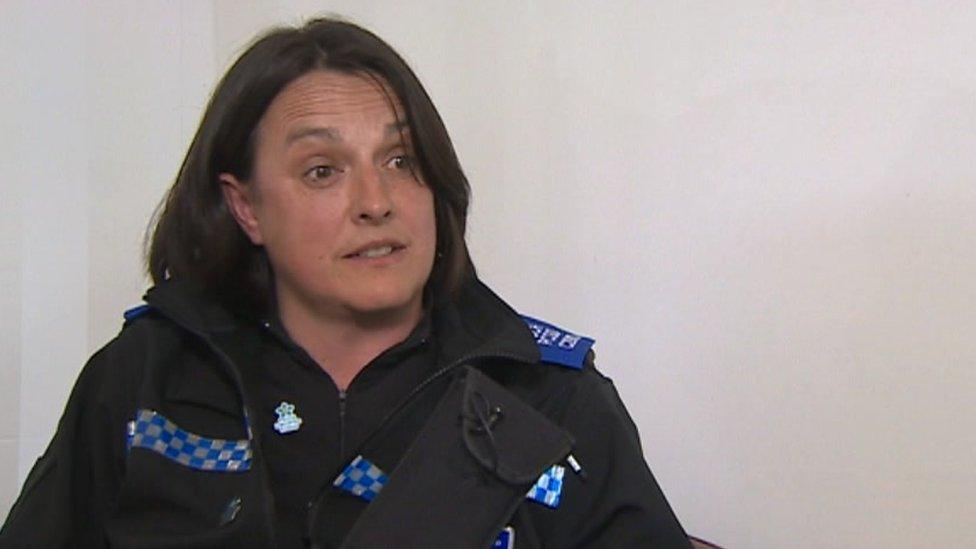
Having the vital information to hand will save time, PCSO Beckmann says
"If there's a chance that they will go missing from a care home or a nursing home, or within the community, the form is in place," explained PCSO Beckmann.
"When they have to report that person missing, all that vital information is on that form.
"Every minute counts - and having that vital information is saving time - it's all there, ready to go."
The Anglesey support officer said she had seen the protocol used successfully on the island, with an elderly woman rapidly traced to one of her favourite locations.
"It's very simple - but very effective," she added.
The protocol is named after a World War Two D-Day veteran called George Herbert. He had been living with dementia when he went missing, and later died.

Protocol offers additional "peace of mind", says care home owner Elen Hughes
Elen Hughes, who owns the Plas Garnedd care home in Pentraeth on Anglesey, said the protocol offered peace of mind to her, her staff, and to the families of those in their care.
"What the Herbert Protocol has done is bolster our own system, so that our staff are not afraid of dialling 999," she said.
"There is no ambiguity about what we do, if we can't find that person.
"It is just a 15 minute job and it could actually be the difference between life and death, and I think that is the important message."
North Wales Police began piloting the scheme in Conwy before rolling it out across the entire force area last year.
The protocol has now been adopted by Wales' other three forces - including Dyfed-Powys Police at the end of March.
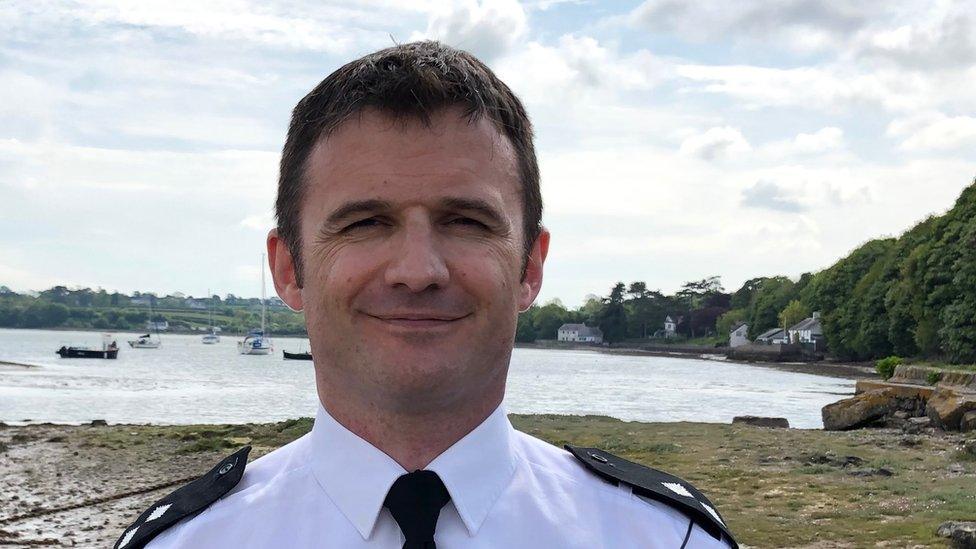
Insp Gethin Jones helped introduce the Herbert Protocol in north Wales
Insp Gethin Jones helped introduce the protocol in north Wales, and said it was a welcome tool in the force's arsenal when it comes to tracing vulnerable people.
"It's got a proven track record elsewhere, a lot of other forces use it effectively," he said.
"It is a very simple process, but the benefits of doing so could mean a lot - not only to the police or the family, but to the wider community as well, to make sure the missing person is found safe and well."
Anyone interested in signing up for the protocol can find more details on their local force's website in Wales.
- Published21 May 2019

- Published23 May 2018
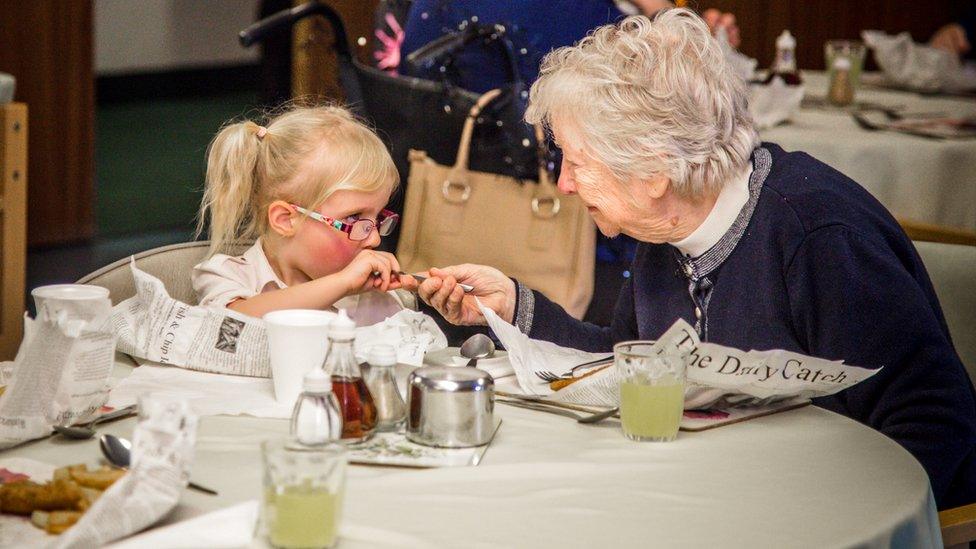
- Published18 July 2016

- Published7 September 2017
